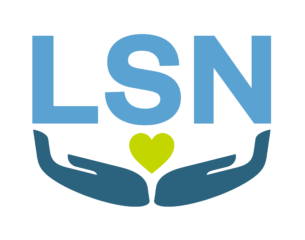Our program is grounded in a practitioner-scholar model of training. Consistent with this model, we assist interns in integrating critical thinking skills, a strong foundation in theory, scientific inquiry, empirical literature and use of local data (empirical data collected from the UNC population) to inform their clinical practice.
The program utilizes a developmental sequential training process. Interns are provided a planned sequence of training experiences that increase in the level of required skill, complexity, challenge and autonomous functioning across the internship year. A broad range of supervision and training experiences are offered to meet individual and group needs. Program choices are based on interns’ individual needs, areas of strength and interest, and skill level, with training experiences structured to be sequential, cumulative, and graded in complexity. We assess each intern’s entry-level skills across the core service areas of the center, as well as in overarching areas. Interns will participate in a wide array of core university counseling services including: triage interviewing and decision making, crisis services, intake clinical assessments, brief individual therapy, longer-term individual therapy, group therapy, outreach and workshop program development and delivery, clinical supervision of practicum trainees, academic intervention assessments, and suicide and safety assessments and prevention activities. Possible training areas, which are not guaranteed, include couples counseling and working with student athletes, as well as consultation and liaison activities. Interns will have opportunities to work closely with a large staff with a wide range of theoretical orientations (including interpersonal, cognitive-behavioral, object-relations, feminist, multicultural, humanistic, existential, narrative, and integrative) and areas of specialization (such as gender issues, LGBTQ identities and communities, disordered eating, sexual and relationship violence, substance abuse, spirituality and mindfulness, suicide prevention, career development, and crisis intervention). As part of our multidisciplinary team, interns will also work closely with psychiatrists and social workers on staff. Interns will have the opportunity for supervision by a number of senior staff, as well as opportunities to learn from the entire CAPS staff via collaboration, co-facilitation, and mentoring. Interns’ learning will be further supplemented by didactic seminars, triage team participation, and professional continuing education opportunities.
CAPS staff is strongly committed to addressing the needs of a diverse student body, as well as continuing to develop multicultural competence among our staff. CAPS values people of every background having access to our services and being treated with respect and dignity. The professional ethics and standards of the various mental health fields represented at CAPS set a framework for understanding how facets of identity (e.g., gender, ethnicity, race, sexual/affectional orientation, age, physical and mental abilities, religious beliefs and socioeconomic class) enhance the understanding and treatment of all people. We have an approach to mental health that integrates physical, emotional, spiritual, social, and cultural dimensions of wellness. Interns will be expected to actively participate in activities designed to increase multicultural awareness, knowledge, and skills and to work with all clients and their experiences. Our program expects interns to acquire and use knowledge of ethical and legal principles and professional practice guidelines to inform their work. Awareness of ethical functioning is integrated into training on multiple levels within the program in order to help interns apply aspirational ethical functioning and learning throughout their professional lives. It is our belief that developing competence as a psychologist requires openness to personal exploration. This use of self is essential to create a strong therapeutic alliance, guide clinical interventions, and build strong collegial relationships. Therefore, the training program depends upon interns’ ability and willingness to explore personal qualities and dynamics that facilitate or hinder interpersonal interactions with staff, as well as with clients. Interns will be asked to engage in personal self-exploration, as appropriate to training goals. Self-disclosures can be opportunities to further develop as a psychologist-in-training. We strive to create and maintain a safe and supportive environment that is conducive to these disclosures. (This section is intended to satisfy Section 7.04 of the APA Ethics Code regarding our responsibility to notify applicants of the requirement for self-disclosure of personal information).

